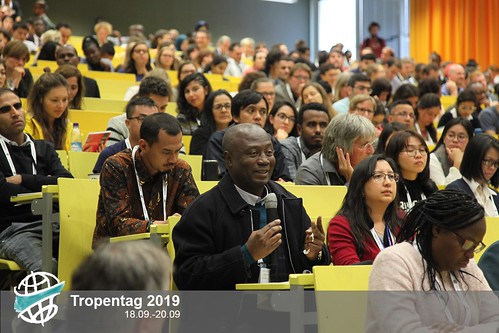Reply to comment
The flavour of good intention
Thu, 09/19/2019 - 13:19 — AhmedWhy chocolate? In 2018, chocolate consumption worth about 828 billion USD in USA. Per capita consumption was about 5.5kg and 8.5kg in USA and Germany, respectively. The main driver for such higher chocolate consumption in Europe comapred to the USA is the flavour. A keynote speaker, Carla Martin, Founder and Executive Director of The Fine Cacao and Chocolate Institute said it is not just chocolate, “it is a flavour that has value”. “The best flavour shows status, enjoyment and so on but, farmers get less credit on it.” The best flavour of the food can be used as a factor to express originality and status. However, the question is are farmers getting the right profit value of their cacao?
 Youtube video: Carla shares her love & enthusiasm for cacao
Youtube video: Carla shares her love & enthusiasm for cacao
Approximately 40 – 50 million people rely on cacao production for subsistence world-wide. However, most of the farmers receive a small profit share of the cacao products. For instance, Africa produces more than 70% of the world cacao, however; the continental consumption is about 4%. Carla further mentioned that “There is inequality between cacao and chocolate”. For example, farmers get about 3% of the market share while the retailers can get up to 43%.
Currently there is fair trade labelling movement to recognize farmer's potential and empowering farmers to get right profit value for their produce. However, the movement is more advanced in developed, rather than developing, countries where most farmers are smallholder farmers.
One of the audience Prof. Kristine from Erfurt University was curious to know how to support cacao farmers in Ghana where cacao production is higher but farmers receive low price of the produce? Carla highlighted that engaging farmers deeply to understand the value chain as well as encouraging them to produce their own chocolate would empower the farmers to know their rights, to gain voice and even help them achieve the right profit value for the flavour of the chocolate.

In spite of challenges such as low yields, diseases and poor market access cacao farmers are facing, they are still producing cacao. Therefore, the question is the flavour of good intentions? • Are tastes are sustainability linked? • Is a good taste a luxury or right? • How can we best acknowledge the labours that are underpinned the production of quality goods? • When we do reward or good taste? • What is the future of chocolate in a world facing climate change?





